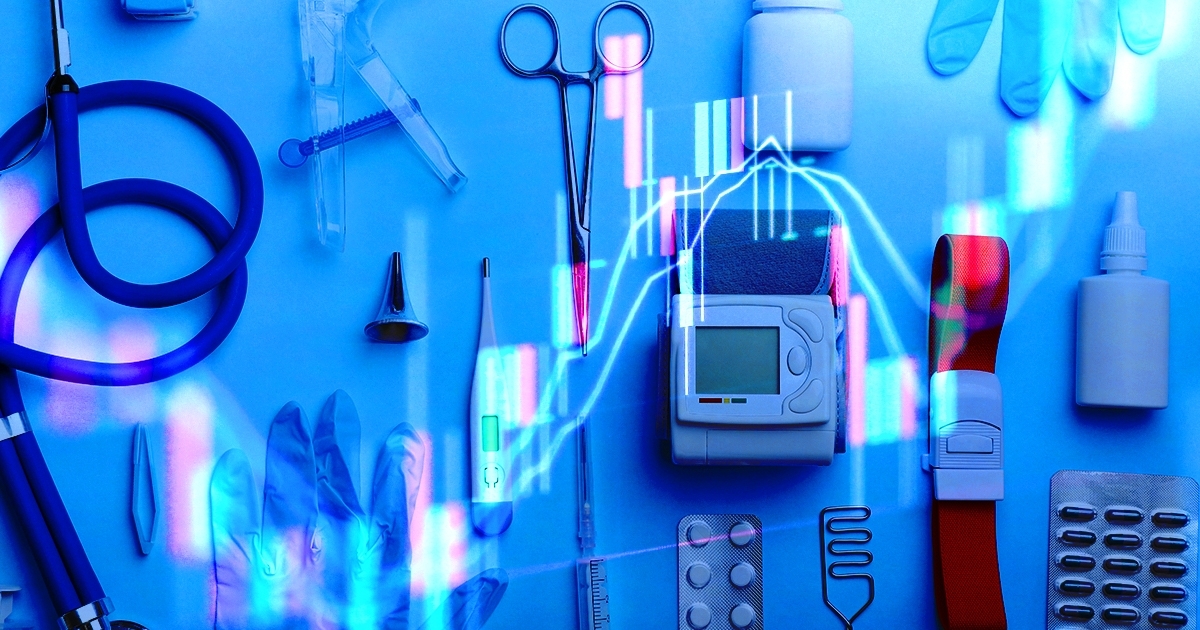Covid-19 Impact on Healthcare Company Valuations & Financings

The turmoil in the stock market over the past month or so has sent leading healthcare indices reeling, casting a cloud over the financing that development-phase biopharma and device companies rely on to take their next step toward commercialization. That cloud may have a silver lining, says Jonathan Norris, managing director of healthcare practice for Silicon Valley Bank and a frequent speaker at OIS events, despite some potentially rough weather ahead.
Healthcare seems to be faring better than the market overall. The Russell 3000 Index is starting to climb back from its March lows, but was still down 14.5% for the year (as of April 14). The NASDAQ Biotechnology Index and IHI Medical Device Index are both faring better, down 9.5% and 8.33% since January 1, respectively.
In an interview with OIS Weekly, Mr. Norris provided his take on how market uncertainty and stay-at-home orders are impacting biopharma and medical development.
Continuation on Funding
Financing deals that had been in the works before mid-March are getting done, Mr. Norris said. “They’re getting funded at valuations that everyone had already agreed to.” (A good example was last week’s OIS Podcast with Robert Dempsey of TearClear, a company that just completed a round of Series B financing.)
But those values aren’t necessarily holding for deals “in diligence,” he noted. “There’s been a little bit of tension between going ahead and being comfortable with the valuation versus some situations where based on market conditions investors want to revisit the valuation,” he said.
That doesn’t mean investors are backing out. “I’m not seeing that,” Mr. Norris said.
“The biggest thing is the potential for clinical trial delays and halts,” he said. “On the biopharma side, folks can’t get out of their house to continue to do what they need to do to be part of clinical trials. And trials that are just getting started may get kicked out because the physicians may or may not be there.”
On the device side, the essential shutdown of elective procedures may take its toll. “But even if it’s not elective,” Norris said, “for the folks that have clinical trials going on, it’s a lot harder for them to get their CROs or reps into surgeries because of the concern about COVID-19.”
Those forces are making it more difficult for development-stage companies to hit milestones and to keep going thus preventing companies from being more aggressive about development. “So, how do you cash conserve? How do you think about having to finance with missed milestones,” Mr. Norris asked. “All of those are negative things that can affect a company in terms of value.”
That has investors trying to stratify companies like a handicapper picks horses. “Who’s healthy in terms of cash, that have 12 to 18 or 24 months of the cash?” Mr. Norris said. “Who are the folks that are potentially at risk struggling because of the current economic situation, who are short on cash?”
Companies in the most difficult position are those that are both short on cash and facing significant delays in their programs, he said.
For companies in a strong cash position, the dynamics are different. “If there’s an opportunity to slam on the accelerator for those companies, maybe you back off slightly and conserve cash a little bit more in order to extend runway,” he said.
Smooth sailing for some, not all
For companies with a commercial product and the prospect of no revenue for the time being and significantly reduced income for the year, the decisions may be more agonizing. “Now, do you think about either less people, maybe furlough workers; and how does that all work to balance running the company while you try and cash conserve?” Mr. Norris said.
Some investors at the early stage of due diligence or term sheet negotiations are “pressing the pause button,” Mr. Norris said. “That doesn’t mean they’re withdrawing their term sheets or pulling out.”
He added, “If there is a silver lining to a very terrible situation in which we find ourselves, it’s that if there’s any sector that is getting interest and positive vibes, it’s the healthcare sector, be it treatments, potential vaccine, tools, testing, etc., to deal with the current market situation, the healthcare entrepreneurial innovation has stepped up. And that’s great to see.”
